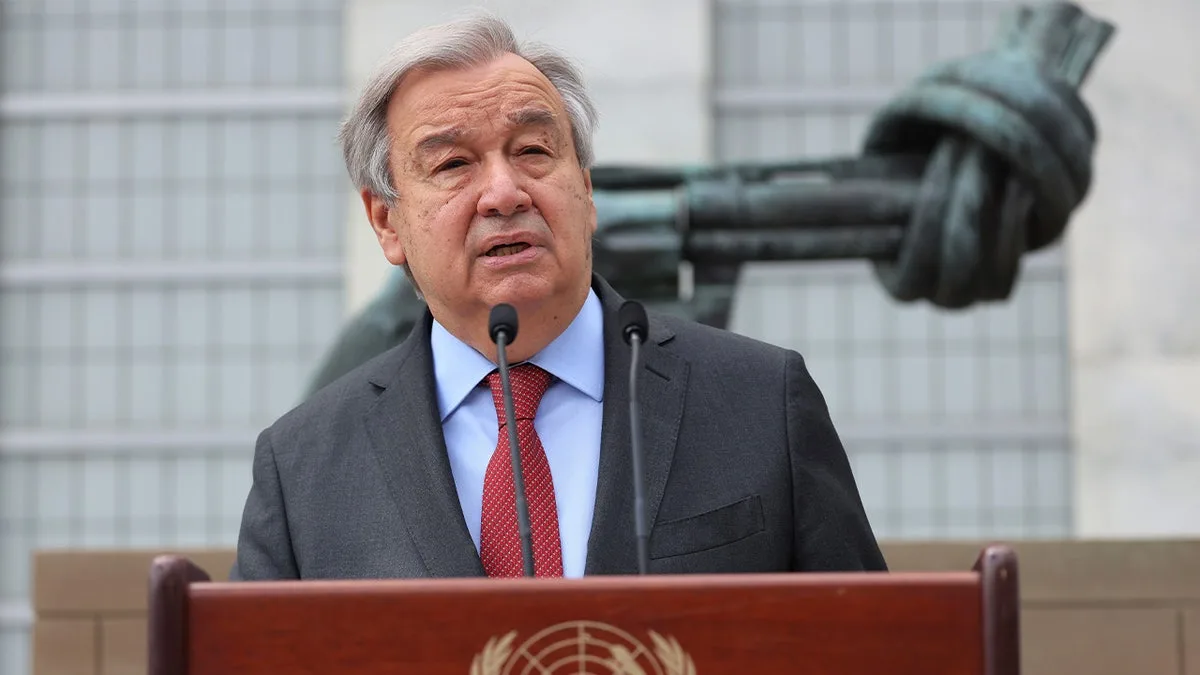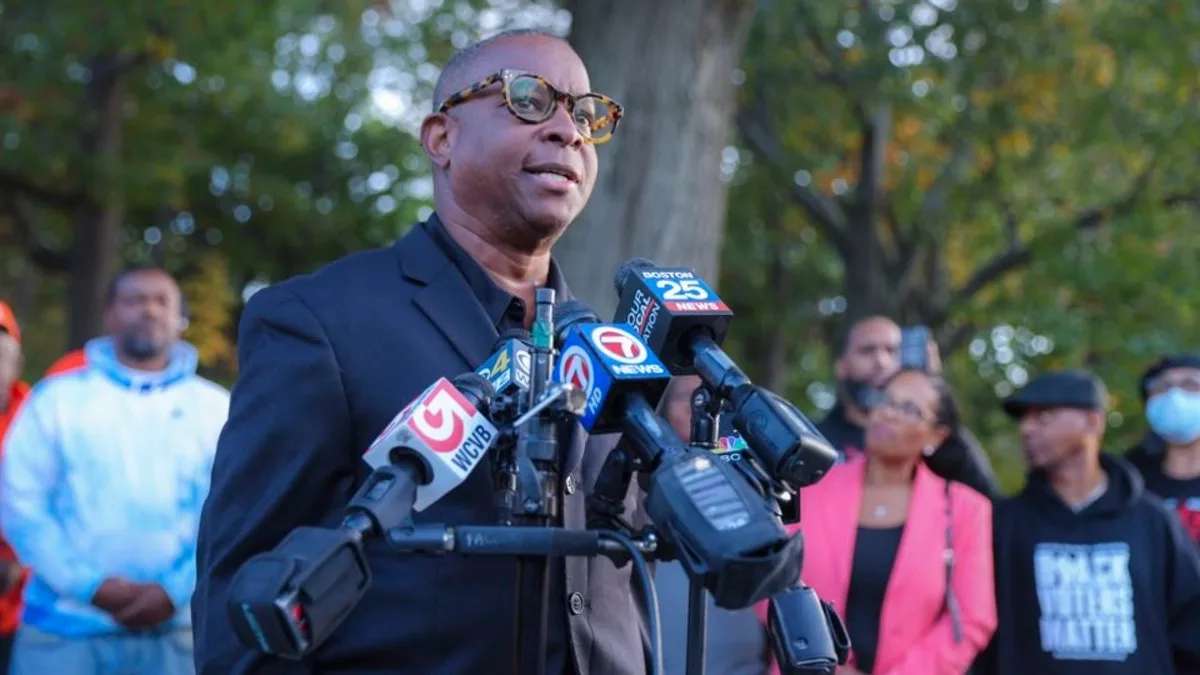The head of the United Nations on Monday called for reparations to “overcome generations of exclusion and discrimination” during their International Day of Remembrance of the Victims of Slavery.
United Nations General Secretary António Guterres called for reparations, citing the past laid the “foundations for a violent discrimination system based on White supremacy.”
The remarks were delivered by the Chef de Cabinet, Earle Courtenay Rattray, on behalf of Guterres.
“We call for reparatory justice frameworks to help overcome generations of exclusion and discrimination,” he told the U.N.’s General Assembly during International Day of Remembrance of the Victims of Slavery and the Transatlantic Slave Trade. “We appeal for the space and necessary conditions for healing, repair and justice.”

United Nations General Secretary António Guterres addresses a news conference during the BRICS summit in Johannesburg, South Africa, on Aug. 24, 2023. (AP Photo/Themba Hadebe)
The Transatlantic slave trade involved the kidnapping and trafficking of over 12 million African people across the Atlantic to North and South America – an effort known as the Middle Passage. Countries involved were the British, French, Spanish colonies that later became the United States.
“The original lie of White supremacy, which animated and justified the horrors of the Transatlantic Slave Trade, the Jim Crow laws and the Apartheid system, continues to poison communities and societies,” he continued. “Today, as we recall centuries of injustice, it is our duty to reject and dismantle racist oppression, end the spread of hatred and lies online, and confront slavery’s lasting legacy of marginalization and impoverishment.”
SAN FRANCISCO’S PROPOSED REPARATIONS PLAN COULD COST CITY $100 BILLION: REPORT
Guterres’ statement came after the U.N. released a report in September calling for countries to consider financial reparations and other measures as recourse for the enslavement of people of African descent.
The report by Guterres said no country has addressed the legacy of slavery that has occurred for more than 400 years.
“Under international human rights law, compensation for any economically assessable damage, as appropriate and proportional to the gravity of the violation and the circumstances of each case, may also constitute a form of reparations,” according to the report.




António Guterres, United Nations Secretary-General, speaks during a press conference at the United Nations Visitors Plaza on April 19, 2022, in New York City. (Michael M. Santiago/Getty Images)
“In the context of historical wrongs and harms suffered as a result of colonialism and enslavement, the assessment of the economic damage can be extremely difficult owing to the length of time passed and the difficulty of identifying the perpetrators and victims,” the report stated.
Similar calls for reparations have been gaining traction in the United States, as measures are being introduced in state legislatures and being pushed by grassroots activists. Municipalities and states recently launched exploratory efforts on the matter, forming committees to examine the impact of slavery in order to calculate how compensation would be dispensed.
CLICK HERE TO GET THE FOX NEWS APP




Rev. Kevin C. Peterson, the founder of the New Democracy Coalition and the Faneuil Hall Race, delivered remarks at a press conference in Roxbury to announce a proposal on how the City of Boston should implement reparations. (Rev. Kevin C. Peterson)
Reparations have also been proposed or are expected to be implemented in cities across California; Fulton County, Georgia; Shelby County, Tennessee; Boston; Detroit; St. Paul, Minnesota; and Durham, North Carolina.
Reparations are even being considered at the federal level.


